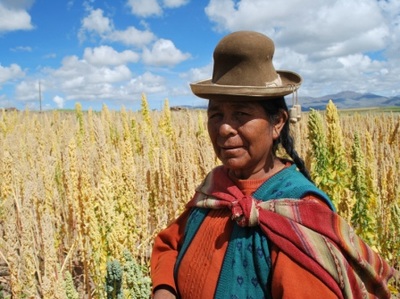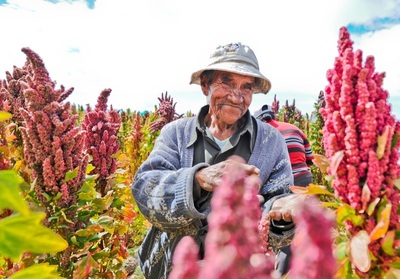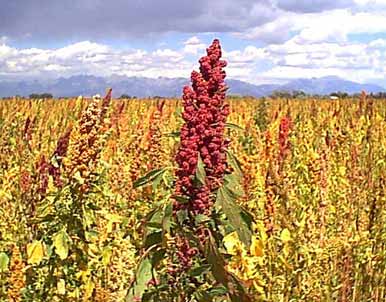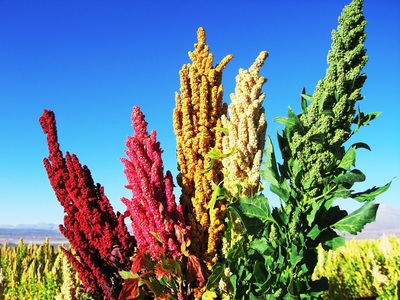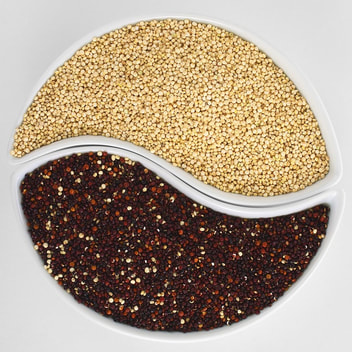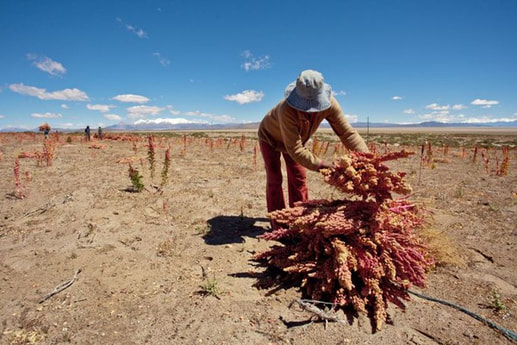- ---------------------------
- 🌿 W O R S T F O O D
- -----------------------------
- Bread
- Gluten Brain
- Extreme Dangers
- Food for Faster Aging
- Is Wheat Poison?
- Is Quinoa Gluten Free?
- Is Corn Gluten-Free?
- Leaky Guts Syndrome
- Mental Health / Gluten
- No Starch for Infants
- Rice / High in Arsenic
- Wheat Belly
- Wheat’s Dark Side
- Worst Food # 1
- -----------------------------
Welcome to Gluten Free Society
Our mission is to:
Educate the world about the broad reaching nature of gluten on human health and wellness.
Provide easy to use, non-invasive tools to help identify those
who are gluten sensitive – including genetic testing.
Provide instruction through video, audio, and written tutorials for those
trying to embark on a TRUE gluten free lifestyle.
Provide healthy resources for those with gluten intolerance / sensitivity.
Support research endeavors revolving around grains, gluten, lectins, and other compounds within grain that may harm human health.
Provide an ongoing analysis and commentary of research performed
in the field of food sensitivity / intolerance.
The Gluten Free Society was founded
by Dr. Peter Osborne to help YOU become a healthy, happy Gluten Free Warrior!
Read more at https://www.glutenfreesociety.org/#hf16hcUJhpmD3bMi.99
Our mission is to:
Educate the world about the broad reaching nature of gluten on human health and wellness.
Provide easy to use, non-invasive tools to help identify those
who are gluten sensitive – including genetic testing.
Provide instruction through video, audio, and written tutorials for those
trying to embark on a TRUE gluten free lifestyle.
Provide healthy resources for those with gluten intolerance / sensitivity.
Support research endeavors revolving around grains, gluten, lectins, and other compounds within grain that may harm human health.
Provide an ongoing analysis and commentary of research performed
in the field of food sensitivity / intolerance.
The Gluten Free Society was founded
by Dr. Peter Osborne to help YOU become a healthy, happy Gluten Free Warrior!
Read more at https://www.glutenfreesociety.org/#hf16hcUJhpmD3bMi.99
IS QUINOA A SAFE GLUTEN FREE FOOD ALTERNATIVE?
www.glutenfreesociety.org/wp-content/uploads/Quinoa.jpg
A commonly asked question for those embarking on a gluten free diet – “Is quinoa a safe alternative to eat?”
What is Quinoa?
Quinoa is actually not a grain. It is a pseudocereal seed used by many as a gluten free substitute.
It is a commonly used staple crop in South America, specifically grown in the Andes. Quinoa has a favorable protein content and contains a number of minerals and B-vitamins. With the popularity of the gluten free diet on the rise, interest in quinoa has skyrocketed, and it is being touted as a safe and healthy alternative to wheat, barley, rye and other gluten containing grains. Ergo the question – Is quinoa a safe gluten free food?
The Problem With Quinoa…
Technically, quinoa is gluten free. However; the processing of the pseudo grain is often performed in facilities that also process other grain based foods. This is where cross contamination becomes a major issue. A recent study found that 41% of processed products randomly pulled from grocery shelves contain enough gluten to cause damage to those with gluten sensitivity. As stated above, quinoa is a seed. One of the problems with seeds in general, is that they are particular hard to digest. Many seeds contain gluten like proteins and chemical compounds called lectins. Many of the lectins and gluten based components have been shown to created digestive suppression and inflammatory problems in humans, and they are known contributors of autoimmune disease.
Is Quinoa Gluten Free?
Technically speaking quinoa is gluten free based on the definition of gluten created for those with celiac disease. However; quinoa does have “gluten like” storage proteins that can mimic proteins found in wheat, barley, and rye. The obvious question is: are these storage proteins sufficiently similar to traditional glutens that they could cause an immune reaction in celiac patients or in patients with other forms of gluten sensitivity? According to new research, the answer is yes…
New Study Identifies Quinoa as a Potential Danger
A recent research paper published by V.F. Zevallos and co-workers examined 15 different varieties of quinoa, to examine their safety for people with celiac disease.
The quinoa proteins were tested to determine if they led to an increased production of IFN (interferon)-gamma and IL( interleukin) 15. These inflammatory chemicals (also called cytokines) play important roles for the human immune response to gluten. What did the researchers find?
Two out of the 15 quinoa cultivars (“Ayacuchana” and “Pansakalla”) stimulated an immune response that was as potent as that observed for wheat gluten.
This result suggests that quinoa is not necessarily safe for ingestion in those with gluten sensitivity. Additionally, the results shed more light on the traditional flawed thought that proteins in wheat, barley, and rye are the only food proteins to be problematic in patients with gluten sensitivity.
Resource: Am J Clin Nutr. 2012 Jul 3. [Epub ahead of print]
Gluten Definition Overhaul is Needed
Current testing for gluten relies on a methodology called ELISA. The testing measures the quantity of traditional glutens present in food. Unfortunately, it does not measure weather other glutens and gluten like proteins cause inflammatory problems in patients. This problem has been pointed out multiple times in research. Case in point – rice, corn, soy, and dairy have all been shown to cause inflammatory reactions and or villous atrophy identical to celiac disease in human studies. Yet the generic recommendation by most doctors and nutritionists is to eat this foods without concern. When you also take into consideration that up to 92% of people following a traditional gluten free diet don’t heal, and continue to be stricken with multiple forms of autoimmune disease, it becomes clear that more precise definitions are needed.
Looking out for your health,
Dr. Osborne
See more at: https://www.glutenfreesociety.org/is-quinoa-a-safe-gluten-free-food-alternative/#sthash.YTEpESgk.dpuf
Read more at https:
//www.glutenfreesociety.org/is-quinoa-a-safe-gluten-free-food-alternative/#LMSJHMDCUrxQWPst.99
www.glutenfreesociety.org/wp-content/uploads/Quinoa.jpg
A commonly asked question for those embarking on a gluten free diet – “Is quinoa a safe alternative to eat?”
What is Quinoa?
Quinoa is actually not a grain. It is a pseudocereal seed used by many as a gluten free substitute.
It is a commonly used staple crop in South America, specifically grown in the Andes. Quinoa has a favorable protein content and contains a number of minerals and B-vitamins. With the popularity of the gluten free diet on the rise, interest in quinoa has skyrocketed, and it is being touted as a safe and healthy alternative to wheat, barley, rye and other gluten containing grains. Ergo the question – Is quinoa a safe gluten free food?
The Problem With Quinoa…
Technically, quinoa is gluten free. However; the processing of the pseudo grain is often performed in facilities that also process other grain based foods. This is where cross contamination becomes a major issue. A recent study found that 41% of processed products randomly pulled from grocery shelves contain enough gluten to cause damage to those with gluten sensitivity. As stated above, quinoa is a seed. One of the problems with seeds in general, is that they are particular hard to digest. Many seeds contain gluten like proteins and chemical compounds called lectins. Many of the lectins and gluten based components have been shown to created digestive suppression and inflammatory problems in humans, and they are known contributors of autoimmune disease.
Is Quinoa Gluten Free?
Technically speaking quinoa is gluten free based on the definition of gluten created for those with celiac disease. However; quinoa does have “gluten like” storage proteins that can mimic proteins found in wheat, barley, and rye. The obvious question is: are these storage proteins sufficiently similar to traditional glutens that they could cause an immune reaction in celiac patients or in patients with other forms of gluten sensitivity? According to new research, the answer is yes…
New Study Identifies Quinoa as a Potential Danger
A recent research paper published by V.F. Zevallos and co-workers examined 15 different varieties of quinoa, to examine their safety for people with celiac disease.
The quinoa proteins were tested to determine if they led to an increased production of IFN (interferon)-gamma and IL( interleukin) 15. These inflammatory chemicals (also called cytokines) play important roles for the human immune response to gluten. What did the researchers find?
Two out of the 15 quinoa cultivars (“Ayacuchana” and “Pansakalla”) stimulated an immune response that was as potent as that observed for wheat gluten.
This result suggests that quinoa is not necessarily safe for ingestion in those with gluten sensitivity. Additionally, the results shed more light on the traditional flawed thought that proteins in wheat, barley, and rye are the only food proteins to be problematic in patients with gluten sensitivity.
Resource: Am J Clin Nutr. 2012 Jul 3. [Epub ahead of print]
Gluten Definition Overhaul is Needed
Current testing for gluten relies on a methodology called ELISA. The testing measures the quantity of traditional glutens present in food. Unfortunately, it does not measure weather other glutens and gluten like proteins cause inflammatory problems in patients. This problem has been pointed out multiple times in research. Case in point – rice, corn, soy, and dairy have all been shown to cause inflammatory reactions and or villous atrophy identical to celiac disease in human studies. Yet the generic recommendation by most doctors and nutritionists is to eat this foods without concern. When you also take into consideration that up to 92% of people following a traditional gluten free diet don’t heal, and continue to be stricken with multiple forms of autoimmune disease, it becomes clear that more precise definitions are needed.
Looking out for your health,
Dr. Osborne
See more at: https://www.glutenfreesociety.org/is-quinoa-a-safe-gluten-free-food-alternative/#sthash.YTEpESgk.dpuf
Read more at https:
//www.glutenfreesociety.org/is-quinoa-a-safe-gluten-free-food-alternative/#LMSJHMDCUrxQWPst.99
GUIDELINES FOR AVOIDING GLUTEN (UNSAFE
INGREDIENTS FOR GLUTEN SENSITIVITY)
https://www.glutenfreesociety.org/wp-content/uploads/2011/11/glutenology-r-300x227.png
The following is a comprehensive (but not complete) list of foods that do contain gluten or that may contain it. This list can be used as a guideline for those with gluten intolerance or celiac disease.
Many items listed below are traditionally considered safe. However; it should be noted that many of the traditionally safe grains have been studied to cause and to contribute to damage yet they continue to be recommended by the gluten free food industry.
The difference between a traditional gluten free diet and the TRUE gluten free diet can be found in the following video tutorial <<<
TRUE Gluten Free Diet Guidelines – Avoid All of These…
https://www.glutenfreesociety.org/are-oats-safe-to-eat-on-a-gluten-free-diet/
* These grains are classically considered gluten free, but are not recommended on a TRUE gluten free diet. If you would like to learn more about why these other grains should be avoided, watch the following video <<<
*** These items are technically not grains, but are at high risk for cross contamination and not recommended on a TRUE gluten free diet unless verification can be obtained. These pseudo cereals are also very high in glutamic acid and should be discouraged as substitutes for patients with neurological symptoms.
Food Additives or Processed Foods That Can Contain Gluten
The Grasses – Many people want to use wheat, barley, rye, and oat grass (not the seed) as a supplement in the diet. Technically, these do not contain gluten as they are the grass part of the plant. However; it is recommended that these be avoided to prevent the possibility of cross contamination.
Alcoholic Beverages that contain gluten
Non Edible Items That May Contain Gluten (Read Your Labels)
Is There Gluten in Dairy?
Research has identified that gluten from mother’s milk passes into the dairy of humans. A majority of gluten sensitive individuals do not tolerate milk or dairy based foods. The staple diet for commercial dairy cows is grain. Whether or not glutens from feeding cows grain crosses into dairy is still in question and has not been adequately studied. That being said, common sense of the obvious should supersede the decision to use dairy. Gluten Free Society recommends only dairy that comes directly from pasture fed cows if any at all. For more in depth information on this topic, please listen to the following 2 part interview between Dr. Peter Osborne and Dr. Rodney Ford:
Part 1
Part 2
*** Note – there is no such thing as a complete comprehensive list of food items that contain gluten. Manufacturers regularly change their ingredients, mislabel, have product recalls, etc. This is why Gluten Free Society’s stance is to avoid processed and packaged foods as much as possible as well as to avoid eating out as much as possible. You cannot control the mistakes or ethical considerations of others.
Gluten Free Society is your complete resource on all things gluten! Video tutorials, Interactive Forum, Gluten Free TV, Recipes, and more…
Sign up below for our free updates…Once you sign up, check your email and click on the link to confirm!
- See more at:
https://www.glutenfreesociety.org/guidelines-for-avoiding-gluten-unsafe-ingredients-for-gluten-sensitivity/#sthash.MQX5Ao9q.dpuf
- Read more at
https://www.glutenfreesociety.org/guidelines-for-avoiding-gluten-unsafe-ingredients-for-gluten-sensitivity/#WOfgKIwM5SgdBe71.99
INGREDIENTS FOR GLUTEN SENSITIVITY)
https://www.glutenfreesociety.org/wp-content/uploads/2011/11/glutenology-r-300x227.png
The following is a comprehensive (but not complete) list of foods that do contain gluten or that may contain it. This list can be used as a guideline for those with gluten intolerance or celiac disease.
Many items listed below are traditionally considered safe. However; it should be noted that many of the traditionally safe grains have been studied to cause and to contribute to damage yet they continue to be recommended by the gluten free food industry.
The difference between a traditional gluten free diet and the TRUE gluten free diet can be found in the following video tutorial <<<
TRUE Gluten Free Diet Guidelines – Avoid All of These…
- Wheat
- Barley (malt)
- Rye
- Oats
- Sorghum*
- Millet*
- Teff*
- Triticale
- Spelt
- Durum (semolina)
- Einkorn
- Emmer
- Corn (maize)* (for a list of hidden corn ingredients, go here <<<)
- Rice (does not include wild rice varieties but does include brown rice)*
- Groat
- Graham
- Amaranth***
- Buckwheat***
- Quinoa***
https://www.glutenfreesociety.org/are-oats-safe-to-eat-on-a-gluten-free-diet/
* These grains are classically considered gluten free, but are not recommended on a TRUE gluten free diet. If you would like to learn more about why these other grains should be avoided, watch the following video <<<
*** These items are technically not grains, but are at high risk for cross contamination and not recommended on a TRUE gluten free diet unless verification can be obtained. These pseudo cereals are also very high in glutamic acid and should be discouraged as substitutes for patients with neurological symptoms.
Food Additives or Processed Foods That Can Contain Gluten
- MSG
- Modified food starch
- Textured vegetable protein
- Hydrolyzed plant protein
- Hydrolyzed vegetable protein
- Hydrogenated Starch Hydrolysate
- Hydroxypropylated Starch
- Pregelatinized starch
- Vegetable gum
- Vegetable protein
- Extenders and binders
- Maltodextrin (wheat or corn based)
- Dextrin
- Maltose
- Non Dairy Creamer
- Seasonings (check labels)
- Natural Flavors
- Smoke flavors
- Artificial Flavors
- Natural Colors
- Artificial Colors
- Caramel color and flavoring
- Soy Sauce
- Miso
- Bouillon cubes or stock cubes
- Candy may be dusted with wheat flour; ask.
- Canned soups – Most are not acceptable.
- Cheese spreads & other processed cheese foods.
- Chocolate – may contain malt flavoring.
- Cold cuts, Wieners, Sausages – may have gluten due to cereal fillers.
- Dip mixes
- Dry sauce mixes
- Honey Hams – can be based with wheat starch in coating.
- Ice Cream & Frozen Yogurt – check all dairy. Cows are fed grains and many react to dairy for this reason. Grass fed dairy recommended (or avoid dairy altogether).
- Instant Teas & Coffees – cereal products may be included in the formulation.
- Mayonnaise – check thickener and grain based vinegar ingredients
- Mustard – Mustard powder may contain gluten
- Oil, frying – Check for cross contamination or corn based oils.
- Poultry and meats – Check out the flavorings and basting and inquire about meat glue
- Sour cream – May contain modified food starch of indeterminate source.
- Dry roasted nuts & honey roasted nuts
- French fries in restaurants – Same oil may be used for wheat-containing items.
- Gravies – check out thickening agent and liquid base.
- Vitamin supplements (different brands contain grain based ingredients – check the labels carefully)
- Baking powder (commonly contains grain – wheat or corn)
The Grasses – Many people want to use wheat, barley, rye, and oat grass (not the seed) as a supplement in the diet. Technically, these do not contain gluten as they are the grass part of the plant. However; it is recommended that these be avoided to prevent the possibility of cross contamination.
Alcoholic Beverages that contain gluten
- Beer
- Malted beverages
- Grain based spirits (many claim that distillation removes gluten…Gluten Free Society recommends avoidance regardless)
Non Edible Items That May Contain Gluten (Read Your Labels)
- Stamps & envelopes
- Toothpaste
- Lipstick
- Hairspray & Shampoo
- Detergents
- Pet Food
- Medications & Vitamins
- Lotions
- Playdough
- Makeup
Is There Gluten in Dairy?
Research has identified that gluten from mother’s milk passes into the dairy of humans. A majority of gluten sensitive individuals do not tolerate milk or dairy based foods. The staple diet for commercial dairy cows is grain. Whether or not glutens from feeding cows grain crosses into dairy is still in question and has not been adequately studied. That being said, common sense of the obvious should supersede the decision to use dairy. Gluten Free Society recommends only dairy that comes directly from pasture fed cows if any at all. For more in depth information on this topic, please listen to the following 2 part interview between Dr. Peter Osborne and Dr. Rodney Ford:
Part 1
Part 2
*** Note – there is no such thing as a complete comprehensive list of food items that contain gluten. Manufacturers regularly change their ingredients, mislabel, have product recalls, etc. This is why Gluten Free Society’s stance is to avoid processed and packaged foods as much as possible as well as to avoid eating out as much as possible. You cannot control the mistakes or ethical considerations of others.
Gluten Free Society is your complete resource on all things gluten! Video tutorials, Interactive Forum, Gluten Free TV, Recipes, and more…
Sign up below for our free updates…Once you sign up, check your email and click on the link to confirm!
- See more at:
https://www.glutenfreesociety.org/guidelines-for-avoiding-gluten-unsafe-ingredients-for-gluten-sensitivity/#sthash.MQX5Ao9q.dpuf
- Read more at
https://www.glutenfreesociety.org/guidelines-for-avoiding-gluten-unsafe-ingredients-for-gluten-sensitivity/#WOfgKIwM5SgdBe71.99
- Gluten Sensitivity – What is it?
- 02 – Gluten Sensitive? What Now?
- 03 – Regaining Your Health Again
- 04 – Taking your pantry gluten free
- 05 – Cleaning out your refrigerator
- 06 – Identifying Gluten in Medications
- 07 – Navigating the Grocery Store
- 08 – Eating Gluten Free on the Road
- 09 – Gluten and Cross Contamination
- 10 – Gluten Free Alcoholic Beverages
- 11 – Does My Family Need to Be Tested?
- 12 – Being Gluten Free and Social
- 13 – Gluten Free Food Substitutions
- 14 – Gluten Free Kids
- 15 – Exercise for the Gluten Sensitive
- 7 Highly Effective Healthy Habits of a Gluten Free Warrior
- Gluten and Hormone Imbalance
- Gluten Free Fit
- Gluten Free Fit
What To Do If you Have Suspected Gluten Induced Nerve Damage
Want to Learn More About Gluten Induced Nerve Damage?
Watch this in depth interview with functional medicine psychiatrist, Dr. Charles Parker now <<<
In good health, Dr. Osborne
- See more at: https://www.glutenfreesociety.org/no-grain-no-pain-phils-story/#sthash.zpbpoN4G.dpuf
Read more at https://www.glutenfreesociety.org/no-grain-no-pain-phils-story/#o8iyBsmDjb1McGLy.99
- Go on a TRUE gluten free diet. That means cutting out the gluten free (highly processed, non organic, genetically modified) bread, pasta, and cereal.
- Remember that gluten causes inflammation. This can cause your body to lose nutrients as it tries to heal the food induced damage. Additionally, gluten can damage the digestive organs and contribute to both digestion and absorption problems. Consider a digestive enzyme and a strong probiotic to help your body recover. Have your doctor check your vitamin and mineral levels with functional testing (serum tests are not accurate – don’t settle for them). You can learn more about this here <<<
- Consider the fact that many medications used to treat nerve disease can cause vitamin and mineral deficiencies. This means that a multivitamin may not be enough to counteract the effects of the medications. Talk with your doctor about the possibility of drug induced nutritional deficiencies. (Vitamin B12, Folate, Magnesium, and CoQ10 are most often effected)
Want to Learn More About Gluten Induced Nerve Damage?
Watch this in depth interview with functional medicine psychiatrist, Dr. Charles Parker now <<<
In good health, Dr. Osborne
- See more at: https://www.glutenfreesociety.org/no-grain-no-pain-phils-story/#sthash.zpbpoN4G.dpuf
Read more at https://www.glutenfreesociety.org/no-grain-no-pain-phils-story/#o8iyBsmDjb1McGLy.99
Have You Gone Gluten Free But Still Remain Sick?
Are you confused and frustrated with all of the misinformation about gluten?GlutenFreeSociety.org is the world’s ultimate resource for those who are serious about improving their health with a True Gluten Free diet. Within GlutenFreeSociety.org you’ll find a comprehensive and constantly updated collection of articles, video tutorials, podcasts, expert physician interviews, product reviews, and more.
image: https://www.glutenfreesociety.org/wp-content/uploads/sign-up-now_2_blue2.gif
Have You Been Diagnosed With Any of the Following Problems?
If so, gluten may be the culprit…Going TRUE gluten free may resolve your problems! It restored Dana’s health…
Are you like them?“I am in the middle of watching the Jan 2010 meeting video. It is riveting. I have been on the standard Gfree diet for one year with NO difference in my health or quality of life. Now, I know why! Thank God!” – Kathryn Blair
Regina’s Story…I spent several years suffering from nausea, acid reflux, extreme fatigue, shortness of breath, light-headedness, indigestion, depression, Gastritis, and sadly the list does not end there. It seemed like every day my problems were getting worse. I took several tests, visited specialists, used an abundance of medication, and spent thousands of dollars, yet all my questions remained unanswered. Needless to say, I began losing hope.
For years, I dedicated my life to competitive sports such as swimming, basketball, track, and cross country. My passion kept me going, but my health problems were significantly hindering my accomplishments. I constantly had to stop from nausea or shortness of breath. Many days I had to force myself to participate because I was so exhausted. It broke my heart to not be able to reach my goals because of my sickness.
That all ended once I discovered that I was gluten sensitive. Honestly, I did not even know what Gluten Sensitivity was until Dr. Osborne explained it to me thoroughly. I was absolutely amazed that after years of searching for answers, he solved them in minutes. After a few months of taking my vitamins and eating a gluten free diet, I feel better than I have ever felt before. Almost all of my symptoms have diminished. I am able to be physically active without any complications. I am able to stay up late without needing to take naps during the day, and my stress has greatly minimized. I feel like a completely different person.
I couldn’t be happier with my progress and, it is comforting to know that I wasn’t the only one with these problems. I got the chance to meet other patients that had similar problems and the same success.
It was scary to know that at only nineteen years old, I was sicker than I could ever imagine. I do not know what would have happened to me if I had never met Dr. Osborne, and thanks to him I will never find out. Anyone who would like to improve their health should truly confide in Dr. Osborne’s priciples. I have never met someone so knowledgeable and dedicated as Dr. Osborne. I owe my good health to him. My only complaint is that I didn’t find him sooner.”
Regina went on to compete in and win several fitness contests.
image: https://www.glutenfreesociety.org/wp-content/uploads/regina-testimony.png
Gluten Free – Regina D. – Sugar Land, TX
Gluten Free Society Will Alleviate Your Confusion About Gluten
Free Diets
Founder of Gluten Free Society, Dr. Peter Osborne, has helped thousands of patients regain their health. His unique and successful approaches to health restoration are the same core concepts taught in GlutenFreeSociety’s video tutorial archives. These tutorials will teach you step by step
Read more at https://www.glutenfreesociety.org/non-member/#wByCj2HRGXVt1Z4R.99
Are you confused and frustrated with all of the misinformation about gluten?GlutenFreeSociety.org is the world’s ultimate resource for those who are serious about improving their health with a True Gluten Free diet. Within GlutenFreeSociety.org you’ll find a comprehensive and constantly updated collection of articles, video tutorials, podcasts, expert physician interviews, product reviews, and more.
image: https://www.glutenfreesociety.org/wp-content/uploads/sign-up-now_2_blue2.gif
Have You Been Diagnosed With Any of the Following Problems?
- Acid-reflux-or heartburn
- Anemia
- Autoimmune diseases (including autoimmune thyroid disease, rheumatoid arthritis, and type 1 diabetes)
- Depression
- Migraine Headaches
- Bone loss (including osteopenia and osteoporosis)
- IBS (irritable bowel syndrome)
- Chronic Fatigue
- Gas and bloating
- Unexplained bouts of dizziness or ear ringing
- Skin rashes (including dermatitis herpetiformis,eczema and psoriasis)
- Unexplained infertility
If so, gluten may be the culprit…Going TRUE gluten free may resolve your problems! It restored Dana’s health…
Are you like them?“I am in the middle of watching the Jan 2010 meeting video. It is riveting. I have been on the standard Gfree diet for one year with NO difference in my health or quality of life. Now, I know why! Thank God!” – Kathryn Blair
Regina’s Story…I spent several years suffering from nausea, acid reflux, extreme fatigue, shortness of breath, light-headedness, indigestion, depression, Gastritis, and sadly the list does not end there. It seemed like every day my problems were getting worse. I took several tests, visited specialists, used an abundance of medication, and spent thousands of dollars, yet all my questions remained unanswered. Needless to say, I began losing hope.
For years, I dedicated my life to competitive sports such as swimming, basketball, track, and cross country. My passion kept me going, but my health problems were significantly hindering my accomplishments. I constantly had to stop from nausea or shortness of breath. Many days I had to force myself to participate because I was so exhausted. It broke my heart to not be able to reach my goals because of my sickness.
That all ended once I discovered that I was gluten sensitive. Honestly, I did not even know what Gluten Sensitivity was until Dr. Osborne explained it to me thoroughly. I was absolutely amazed that after years of searching for answers, he solved them in minutes. After a few months of taking my vitamins and eating a gluten free diet, I feel better than I have ever felt before. Almost all of my symptoms have diminished. I am able to be physically active without any complications. I am able to stay up late without needing to take naps during the day, and my stress has greatly minimized. I feel like a completely different person.
I couldn’t be happier with my progress and, it is comforting to know that I wasn’t the only one with these problems. I got the chance to meet other patients that had similar problems and the same success.
It was scary to know that at only nineteen years old, I was sicker than I could ever imagine. I do not know what would have happened to me if I had never met Dr. Osborne, and thanks to him I will never find out. Anyone who would like to improve their health should truly confide in Dr. Osborne’s priciples. I have never met someone so knowledgeable and dedicated as Dr. Osborne. I owe my good health to him. My only complaint is that I didn’t find him sooner.”
Regina went on to compete in and win several fitness contests.
image: https://www.glutenfreesociety.org/wp-content/uploads/regina-testimony.png
Gluten Free – Regina D. – Sugar Land, TX
Gluten Free Society Will Alleviate Your Confusion About Gluten
Free Diets
Founder of Gluten Free Society, Dr. Peter Osborne, has helped thousands of patients regain their health. His unique and successful approaches to health restoration are the same core concepts taught in GlutenFreeSociety’s video tutorial archives. These tutorials will teach you step by step
- How to go 100% TRUE Gluten Free
- Why foods labeled gluten free can still make you sick
- The biggest mistakes people make to wreck their health
- How to find and prepare gluten free food that actually tastes good
- How to deal with those difficult social situations
- How to restore your health and feel better than you ever have…guaranteed!
Read more at https://www.glutenfreesociety.org/non-member/#wByCj2HRGXVt1Z4R.99
QUINOA
What is Quinoa?
Quinoa or quinoa is a pseudocereal produced from ancient times in the Andes: currently Bolivia and Peru, world’s leading producers of Quinoa. It is also produced in countries such as Ecuador, Colombia, Argentina, Chile, and the United States. Quinoa belongs to the Chenopodiaceae family (like spinach) but is usually compared to cereals for its composition and the way of cooking.
How is it cooked?
Quinoa takes two parts of water or broth for a portion of grain to be cooked. It is cooked over medium heat for about 20 minutes, or until the grain becomes transparent. I also recommend soaking the grain for 15 mins to an hour before cooking.
The perfect cooking time is reached when every grain of quinoa has doubled in size and releases its white seed. Best served immediately to keep its flavor and nutritional value.
Benefits of QuinoaHere are some health benefits of this super food.
http://shawellnessclinic.com/shamagazine/en/benefits-quinoa-macrobiotic-diet/
What is Quinoa?
Quinoa or quinoa is a pseudocereal produced from ancient times in the Andes: currently Bolivia and Peru, world’s leading producers of Quinoa. It is also produced in countries such as Ecuador, Colombia, Argentina, Chile, and the United States. Quinoa belongs to the Chenopodiaceae family (like spinach) but is usually compared to cereals for its composition and the way of cooking.
How is it cooked?
Quinoa takes two parts of water or broth for a portion of grain to be cooked. It is cooked over medium heat for about 20 minutes, or until the grain becomes transparent. I also recommend soaking the grain for 15 mins to an hour before cooking.
The perfect cooking time is reached when every grain of quinoa has doubled in size and releases its white seed. Best served immediately to keep its flavor and nutritional value.
Benefits of QuinoaHere are some health benefits of this super food.
- Quinoa is "gluten free" ( Be careful with it ) and has twice as much protein as brown rice or barley. It actually contains 11 amino acids which makes it a complete protein. It is also a good source of iron, manganese, and magnesium.
- Quinoa is much higher in fiber than most grains, which can relieve constipation, and lower cholesterol and glucose levels. The fiber also prevents heart disease, diabetes and high blood pressure.
- Quinoa is good for weight loss programs as it makes you feel full for longer. It is low on the glycemic index yet still relatively high in carbohydrates. Quinoa can also improve metabolic health which keeps blood sugar and triglyceride levels low.
- Quinoa is naturally free of gluten and can increase the antioxidant and nutrient value of a gluten-free diet. It contains flavornoids which have anti-inflammatory, anti viral, anti-cáncer and anti-depressant effects.
- Quinoa is quick and easy to cook, taking only 20 minutes. It can be combined with many different ingredients such as vegetables, beans, lemon, ginger, and other seasonings. Quinoa has a wonderful, unique flavor and can be easily incorporated into your diet.
http://shawellnessclinic.com/shamagazine/en/benefits-quinoa-macrobiotic-diet/





